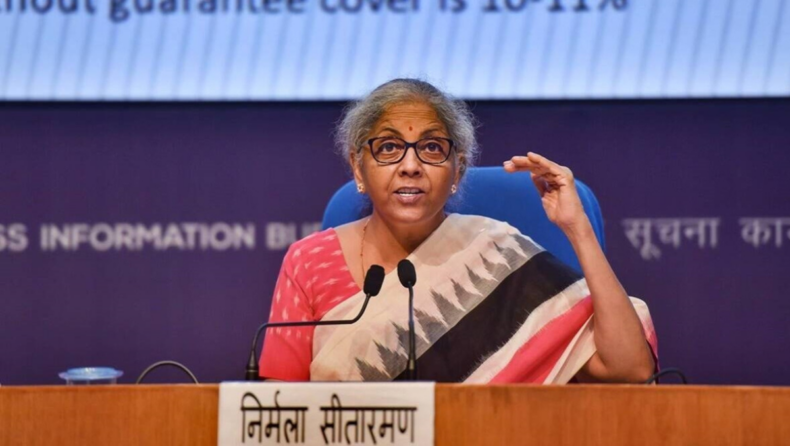FM Nirmala Sitharaman releases the assessment report of the States and Union Territories under ‘Business Reforms Action Plan (BRAP), 2020’. Piyush Goyal, Minister of Commerce & Industry and Anurag Jain, Secretary of the DPIIT were also present.
According to a report released by Finance Minister Nirmala Sitharaman on Thursday, Andhra Pradesh, Gujarat, and Telangana are three of the seven states recognised as topmost achievers in the ranking of states and Union Territories grounded on the execution of the business reform action plan 2020. The other states on the list of top players involve Haryana, Karnataka, Punjab, and Tamil Nadu. The ranking has named Himachal Pradesh, Madhya Pradesh, Maharashtra, Odisha, Uttarakhand, and Uttar Pradesh as Achievers.
The activity’s broader idea is to multiply investor confidence, promote a business-friendly atmosphere, and improve the ease of doing business countrywide by introducing a healthy competitive element through a system of assessing states based on how well they implement the Business Reforms Action Plan (BRAP).
Seven states are listed in the Aspires group as well. This list includes Goa, Kerala, and Assam. Chhattisgarh, Jharkhand, Kerala, Rajasthan, and West Bengal are the other states in this group.
There are eleven states and UTs in the category of emerging business ecosystems, including Delhi, Puducherry, and Tripura. The other states and UTs that were listed in this group are Andaman and Nicobar, Bihar, Chandigarh, Daman and Diu, Dadra and Nagar Haveli, Jammu and Kashmir, Manipur, Meghalaya, Nagaland, and Tripura.
System of Assessment
In contrast to the previous practise of issuing ranks, the commerce and industry ministry has this time revised the ranking system to be category-based, focusing on top achievers, achievers, aspires, and emerging business ecosystems.
Anurag Jain, who serves as the Secretary of the Department for Promotion of Industry and Internal Trade (DPIIT), stated that the differences between the numerous states and union territories were so minimal that it was pointless to rank them and instead they were put into the form of various categories.
Access to information, a single window system, labour and land administration are just some of the 15 business regulation areas that are covered by the 301 reform points that are included in the BRAP 2020 plan.
New reforms
A total of 118 more reforms have been incorporated to further augment the ongoing reform process. In order to broaden the scope of the reform agenda, new sectoral reforms that include 72 action items and are scattered across nine different sectors, such as trade licences, healthcare, legal metrology, and movie theatres, have been launched for the first time.
During her speech at the event, Sitharaman stated that the nature of reforms has evolved since 1991, and that the reforms that are currently being carried out are responsive. In contrast to the reforms that were launched in 1991 which were mandated for execution, there is no compulsion now. The aim at the end is to determine what will lead to an improvement in the system and ensure that we can live better lives. Every level of government now employs some form of nudge.
According to the Minister of Finance, nudging cannot come solely from the government and industry has a significant role to play in this area. In addition to this, she emphasised the importance of capacity building at all levels in order to achieve even higher levels of efficiency.
Ease of doing business
According to Piyush Goyal, Minister of Commerce and Industry, the evaluation has transitioned from being evidence-based to being 100 percent feedback in a multilingual format. He added that the goal of the BRAP exercise is to enhance the business climate in each state/UT and instil a culture of learning from one another’s best practices, with the overarching goal of making India the most favoured investment destination across the globe.
He reflected that as time goes on, the 2014-started process is beginning to bear fruit. Through the spirit of competitive federalism and also of collaboration, we are witnessing the ease of doing business being reflected across the nation as opposed to being limited to a few locations, cities, or firms.
Since 2014, the DPIIT has graded states and UTs according to how well they performed in implementing the reforms that were recommended in the BRAP exercise. So far, the states’ and UTs’ evaluations have been released for the years 2015, 2016, 2017–18, 2019, and 2022.
Jain also urged the states to find minor laws that may be decriminalised in order to ease the compliance burden, making it a civil penalty or compoundable in case of minor violations.













